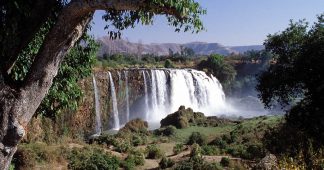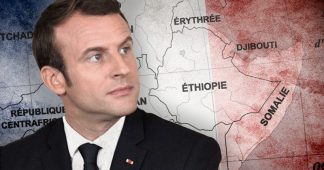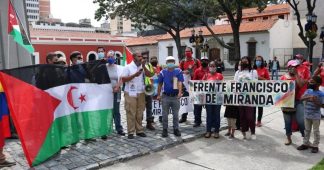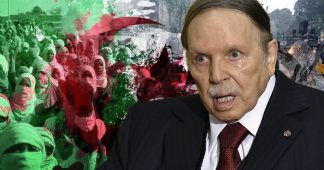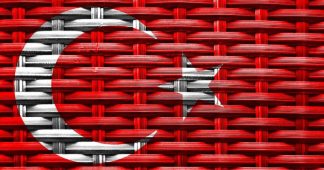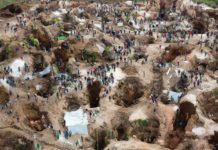Nov. 25, 2020
On Sunday November 23 the Ethiopian government gave the leadership and units of the Tigray People’s Liberation Front (TPLF) 72 hours to lay down their arms and stop resisting federal forces. The announcement was made by Ethiopian Prime Minister Abiy Ahmed.
The conflict between Ethiopia’s central government and the TPLF has been going on for three weeks.
With the end of a three-day ultimatum on November 17, Prime Minister Abiy Ahmed announced an offensive in three strategic directions – west, center and southeast. Federal forces are approaching the regional capital, Mekelle. However, the current conflict is far from over. The UN is warning of a major humanitarian crisis
Ethiopia updates from @AFPAfrica:
– UN warns of possible war crimes
– Abiy (speaking Tigrinya) says TPLF "in the throes of death", urges its troops to "rise up" and side with natl army
– Debretsion says this is a "daydream", reports 100,000+ displaced https://t.co/QRR69rCrUE— Robbie Corey-Boulet (@rcoreyb) November 13, 2020
“The stability of Ethiopia is important for the entire Horn of Africa region,” UN Secretary-General António Guterres earlier said.
The roots of the conflict
The conflict began on November 4, when Ethiopian authorities accused the ruling party in the Tigray Region – TPLF – of attacking a federal army base in the province.
Ethiopia, with 110 million people, is the second largest country in Africa. Tigray is Ethiopia’s northern province bordering Eritrea and Sudan. Of its six million inhabitants, 95% are Tigrayans, making up 5% of the total population of Ethiopia.
However, until recently, this province has played a special role in the life of Ethiopia. The Tigray People’s Liberation Front (TPLF), which ruled in the province from 1991 to 2018, was the de facto ruling party in Ethiopia as a leading force in the political umbrella of the Ethiopian People’s Revolutionary Democratic Front (EPDRF). The party laid the foundations of “ethnic federalism” – an approach where the main ethnicities of Ethiopia have their own statehood in the form of “kililoch” – regional states.
However, the coming to power of a young neo-liberal Abiy Ahmed led to the end of TPLF power at the federal level in 2018. After TPLF held local elections in September 2020, contrary to a federal government ban, Addis Ababa refused to engage in dialogue with Tigray state authorities. After the outbreak of a new civil war, the TPLF was declared a terrorist organization.
Despite the war in Tigray Province, other regional authorities have so far supported the central government. The international community has so far not condemned Addis Ababa. Abiy Ahmed takes advantage of the support from the West. However, if the conflict continues, it threatens to have serious consequences for the entire region.
There is also an economic aspect of the war. The TPLF during its rule became the major actor in the national economy with leading positions in construction, pharmaceutical and transport sectors, telecommunications and others.
“Abiy has unveiled or carried out important economic measures that threaten the economic dominance of the leaders of the TPLF. These include his administration’s plan to privatize the state-owned Ethio Telecom, the Ethiopian Sugar Corporation, and companies in the energy sector with assets of over $7 billion” – experts loyal to Abiy Ahmed stated.
As Bloomberg notes, many of the companies will be sold to the “foreign investors”. Thus, the forceful redistribution of control over Ethiopian economic sectors will result from this civil war, likely in favor of international capital.
After the defeat of TLNP foreign corporations will gain even more control over the Ethiopian economy, and the country’s current elite will report on the growth of foreign investment
Domestic destabilization
So far, Addis Ababa has been successful in its attacks. While the rest of Ethiopia’s ethnic groups have not been largely supportive of TPLF, the victory of the central government may mean a gradual phase-out of the ethnic federalism system.
The conflict is taking on distinct ethnic features. Ethiopian police compile lists of “ethnic Tigrayans from all government agencies and NGOs” .
At Ethiopia’s request, the head of the African Union security service – an ethnic Tigrayan – was dismissed on charges of disloyalty. Given that the Tigrayans occupied leading positions in the security services and army during the TPLF ‘s rule, much of the operations against TPLF are now conducted by regional militias, primarily from Amhara state. The ethnicization of the conflict is leading to massacres of civilians.
Observers have noted the active participation of Amhara militia forces in the war. Amhara’s special forces are actively involved in the operation demonstrating the Ethiopian flags without the blue emblem that was added during the TPLF rule and symbolize unity of all Ethiopian peoples
3/The govt’s strategy to impose order involves bringing in civil servants and special forces from Amhara region, a move that risks inflaming tensions over land.
In some towns, the word “Amhara” has been scrawled on shuttered storefronts.
— Robbie Corey-Boulet (@rcoreyb) November 23, 2020
Also on the Ethiopian government’s side are Somali militias from the state of Oromia, supported by the state of Somalia. These militias participated in the earlier attacks on Oroma people.
Any outcome of the current conflict could lead to the destabilization of Ethiopia. On the one hand, prolongation of the conflict and defeat of the central government may lead to the collapse of the country. On the other hand, the victory of Addis Ababa risks becoming Pyrrhic.
The victory over TPLF as the largest force in Ethiopia in favor of “ethnic federalism” could lead to a federal government offensive on the rights and privileges of other ethnic groups, including Abiy Ahmed’s own Oromo people.
The liberal Prime Minister of Ethiopia, hailed by the West for his market reforms (large scale privatization, liberalization of key economic sectors, inviting foreign investors, attracted by cheap labor force), used his power also to promote the nationalistic agenda instead of “ethnic federalist” one.
Thus, in the south of the country, the federal government is already in conflict with the rebel Oromo Liberation Army (OLA).
Despite the fact that Abiy Ahmed came to power on the wave of Oromo and Amhara protests against the rule of TPLF (and Tigrayans), his relations with Oromo activists have now deteriorated. In July, the state of Oromia was gripped by mass protests after the murder of popular singer Hachalu Hundesa
#Ethiopia following the death of a popular singer Hachalu Hundesa anty government protests have erupted all over Oromia region and beyond. pic.twitter.com/iWwT0xT9gB
— Rayuma Raya (@rayuma_raya) June 30, 2020
Jawar Mohammed, ab Oromo leader, was arrested after the protests in July, and he and other opposition leaders are facing life imprisonment on terrorism charges.
If TPLF is defeated, given the role of Amhara militias in the war, the revanchism of Amhara (the ethnic group that had led Ethiopia before TPLF came to power) will intensify. The response to Amhara nationalism may be the rise of separatist movements, especially the Oromo one, due to the Oromo-Amhara struggle over the status of Addis Ababa
Please see below the #OromoProtests statement on ongoing war in Ethiopia. To address the #CrisisInEthiopia, we demand an all-inclusive #NationalDialogueNow.
via @oromoprotestsHQ / https://t.co/6TAUp0qbLZpic.twitter.com/UFJGgmfWp3
— Marartuu (@misskitila) November 21, 2020
International experts have previously noted the growing tension between Amhara and Tigray, “fueled in part by rising ethnic nationalism in both regions” that preceded the conflict. https://www.voanews.com/africa/risk-conflict-rising-between-2-ethiopia-regional-powers-report-finds
The active participation of Amhara militia in the current conflict suggests that to a large extent, the current war is not only an attempt by the federal government to bring the separatists under its control, but also has the features of an inter-ethnic war.
It should be noted that there was an attempted coup d’état in Amhara state in 2019, which suggests that the federal government’s control over local elites is not strong. Thus, the ability of the central government to fully control the actions of militias is questionable.
In all other regions of the country, except Tigray, intra-ethnic power struggles are ongoing. Accordingly, Abiy Ahmed’s will lead to the weakening of his allies’ positions in the states and the rise of their rivals, who may try to resolve the issue of power in the states by force of arms. Those processes, if not stopped, will lead to total disintegration of Ethiopia
“The result of the recent turmoil and decades of mismanagement is that Ethiopia under Abiy is now a multinational federation threatening to implode’ the Ethiopean intellectual Alemayehu Fentaw Weldemariam argues.
It is possible that if the conflict is prolonged, the legitimacy of the Abiy Ahmed regime will be undermined against the backdrop of Ethiopia’s failure to fight against COVID-19, the deteriorating economic situation and the cancellation of parliamentary elections.
Abiy Ahmed, who won the Nobel Peace Prize for normalizing relations with neighboring Eritrea in 2019, may end up being the ruler that plunges Ethiopia into the abyss of constant civil warfare and conflict along the lines of ethnic strife.
Regional destabilization
The civil war in Ethiopia will significantly affect the situation in the entire Horn of Africa region. Several thousand Ethiopian troops are involved in the African Union’s mission in Somalia (AMISOM). Some of those troops, according to Somali media reports, have already withdrawn to Ethiopia because of the conflict. That will give to terrorist al-Shabaab militants a new impetus in Somalia and will require greater involvement of other countries, especially Kenya, in the conflict.
The conflict could shatter the balance of power in southern Somalia, where Kenya supports the Jubaland autonomists and Ethiopia supports the federal troops in Somalia. Jubaland is supported by Ogaden clan leaders. The Ogaden region in Ethiopia has strong autonomist sentiments, while the leaders of the Ogaden National Liberation Front have opposed the operation in the Tigray Region
The protracted conflict in Ethiopia will mean Addis Ababa can no longer serve as a security source in the Horn of Africa. The result will be a power vacuum that other state actors and non-state terrorist structures will try to fill.
Ethiopian refugees will be a problem, especially for neighboring Sudan.
According to the UN, 4,000 Ethiopians are fleeing across the border into Sudan every day. A wave of 27,000 has already poured into Sudan since the conflict erupted this month.
There is a prospect to involve neighboring Eritrea in the conflict. The TPLF is already accusing it of acting against Ethiopian rule. On November 10, the head of TPLF Debretsion Gebremichael accused Eritrea of providing territory for the passage of federal forces and threatened Eritrea with air strikes in the capital and Red Sea ports. November 14 the Tigray People’s Liberation Front (TPLF) bombed the Eritrean capital Asmara airport
The leader of #Ethiopia’s rebellious #Tigray region confirmed on Sunday that his forces had fired rockets at the airport in #Eritrea’s capital, a major escalation that raises fears of a wider war in the Horn of Africa regionhttps://t.co/sQdeyoJV8E pic.twitter.com/uvTJNpqtKz
— Ethnic Policy (@ethnic_policy) November 16, 2020
For Eritrea, the TPLF is an enemy with which Eritrea fought in 1998-2000. TPLF still controls the disputed areas of Badme-Shiraro area, over which there was a war.
Eritrea’s army is quite large – 200,000 troops and 120,000 reservists, which is more than the Ethiopian armed forces. But because of the embargo that was in force until November 2018, Eritrea has mostly old weapons, much inferior to the arsenal of TPLF.
War and the GERD issue
The civil war in Ethiopia is evidence that the country is not stable. The balance of ethnic elites, on which the long-term board of the TPLF was built for all its shortcomings, has been broken. However, the neoliberal leadership could not offer a new unifying idea for the whole country
Wrecked T-55 near Humera. Unknown who operated it. pic.twitter.com/rnORog2T7Z
— Ethiopia Map (@MapEthiopia) November 23, 2020
This was partly the idea of the Grand Ethiopian Renaissance Dam (GERD), although the project itself was inherited from the previous authorities. The establishment of the 6.45 GW power plant in the Benishangul-Gumuz region of Ethiopia near the border with Sudan should turn Ethiopia into an electricity exporter, give an impetus to industry development and provide Ethiopian farmers with energy and water resources necessary for sustainable development.
The current confrontation in Ethiopia is taking place against the backdrop of conflict with Egypt and Sudan over the construction of the dam on the Blue Nile River. The hydropower plant is to meet Ethiopia’s energy needs, the reservoir began to be filled this summer, despite protests from Sudan and Egypt.
Both countries are afraid that filling the GERD reservoir will lead to Ethiopia’s control over the Nile’s water resources. Both Sudan and Egypt will find themselves in the position of dependent countries, while Egypt risks to lose a significant part of its own water resources.
Egypt loses most of all, because it uses the water of the Nile in agricultural production and is completely dependent on the waters of the Nile.
On November 15, the “Nile’s Eagles-1″ joint military exercise began in Sudan. This is the first joint exercise of Sudan and Egypt after the overthrow of Omar al-Bashir in 2019.
On November 18, Egyptian Foreign Minister Sameh Shoukry received his Eritrean counterpart, Othman Saleh, which raised the question about Egypt’s role in the current conflict within Ethiopia. Eritrea is a historical ally of Egypt.
Although Egypt does not openly support either side in the intra-Ethiopian conflict, Cairo has obviously demonstrated its presence and interest in what is happening at both the military and diplomatic levels. The destabilization in Ethiopia adds weight to Cairo’s arguments in favor of GERD international regulation. It is very risky to place an object on which the life of the entire Nile Valley depends under the control of the government of a country in the midst of a civil war.
Interestingly, another escalation in Ethiopia directly coincided with the disruption of dam negotiations. In late October, the next stage of negotiations was held under the auspices of the African Union. On the fourth of November, the meeting of ministers of water resources of Egypt and Sudan did not take place and as the parties did not agree on the format. On the same day, the fighting started. Inability of present Ethiopian leadership to have a constructive dialogue both with the opposition inside the country and on the international level is indicative.
The longer the civil war drags on, the closer the Egyptian arguments will be to the world community. On the other hand, it is not quite true that Egypt favors long conflict in Ethiopia. It might be not easier to make Addis Ababa sign an agreement on Hidase hydroelectric power plant on favorable terms during the war.
On the contrary, in an internal conflict, the government of Abiy Ahmed will not undermine its credibility by making concessions to Egypt, which could be seen as a weakness. In the event of an unconditional victory, Abiy Ahmed’s government will also not be inclined to make concessions. Only the scenario of a complete collapse of Ethiopian statehood can stop the GERD project.
However, this scenario would threaten the security of Africa, and potentially lead to a massive flow of refugees to other countries of the continent including Egypt itself and to Europe, as well as to the rise of extremism, which is not in the interests of either Egypt or Sudan
Published at uwidata.com
